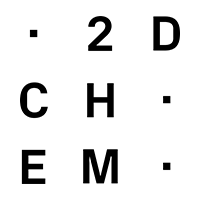Es un proyecto liderado por Gonzalo Abellán, líder del grupo 2DCHem del Instituto de Ciencia Molecular (ICMol) de la Universitat de València y financiado por financiado por MCIN/AEI y por la Unión Europea Next GenerationEU/ PRTR, en el cual se propone desarrollar un reactor automático de flujo continuo a escala piloto para la producción escalable de materiales de bismuto para baterías de iones sodio de alto rendimiento. Así, se desarrollará a escala piloto un reactor que funcione en flujo continuo. Se optimizará el procesamiento del ánodo en películas finas y, por último, se montarán dispositivos con una elevada relación material/peso total para alcanzar densidades energéticas relevantes.
En la actualidad, las baterías de ion litio prácticamente dominan el mercado. Sin embargo, la escasez de litio, su distribución geográfica, extracción y tratamiento potencialmente tóxicos han impulsado, tanto a la comunidad científica, como la industrial, a buscar alternativas rentables y respetuosas con el medio ambiente.
El sodio se presenta como un excelente candidato debido a su abundancia, accesibilidad y su proceso de extracción mucho más ecológico. Sin embargo, el mayor tamaño del catión Na+ frente al del catión Li+, hace que el proceso de inserción-extracción de los iones sea mucho más lento e ineficiente en los materiales que se usan típicamente como ánodos en las baterías de litio, siendo uno de los principales inconvenientes para el desarrollo de las baterías de iones de sodio (NaIBs).
Entre los diferentes materiales de electrodos, el bismuto se considera una de las mejores opciones como ánodo para NaIBs, debido a su gran capacidad gravimétrica, su abundancia en la corteza terrestre, su no toxicidad y su precio asequible.
En resumen, 2DBiBatt producirá material suficiente para ánodos de NaIBs y crear prototipos eficientes de celdas tipo botón y tipo “pouch”, que se probarán en condiciones industriales relevantes frente a las baterías de iones de litio estándar para su evaluación comparativa. Esta prometedora tecnología estará perfectamente posicionada para ser transferida a la industria, o incluso, para explorar la creación de una empresa derivada.
En la actualidad, las baterías de ion litio prácticamente dominan el mercado. Sin embargo, la escasez de litio, su distribución geográfica, extracción y tratamiento potencialmente tóxicos han impulsado, tanto a la comunidad científica, como la industrial, a buscar alternativas rentables y respetuosas con el medio ambiente.
El sodio se presenta como un excelente candidato debido a su abundancia, accesibilidad y su proceso de extracción mucho más ecológico. Sin embargo, el mayor tamaño del catión Na+ frente al del catión Li+, hace que el proceso de inserción-extracción de los iones sea mucho más lento e ineficiente en los materiales que se usan típicamente como ánodos en las baterías de litio, siendo uno de los principales inconvenientes para el desarrollo de las baterías de iones de sodio (NaIBs).
Entre los diferentes materiales de electrodos, el bismuto se considera una de las mejores opciones como ánodo para NaIBs, debido a su gran capacidad gravimétrica, su abundancia en la corteza terrestre, su no toxicidad y su precio asequible.
En resumen, 2DBiBatt producirá material suficiente para ánodos de NaIBs y crear prototipos eficientes de celdas tipo botón y tipo “pouch”, que se probarán en condiciones industriales relevantes frente a las baterías de iones de litio estándar para su evaluación comparativa. Esta prometedora tecnología estará perfectamente posicionada para ser transferida a la industria, o incluso, para explorar la creación de una empresa derivada.
19/12/2022






